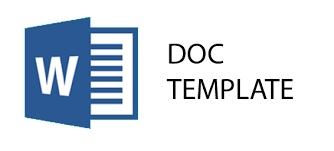Potensi Industri Pangan dalam Pengembangan Pariwisata Bromo: Persepsi Penduduk Desa Wonokitri
DOI:
https://doi.org/10.37253/altasia.v5i2.7656Keywords:
Bromo, UMKM, Potensi, Pengembangan, Pariwisata BerkelanjutanAbstract
Pembangunan pariwisata di kawasan Bromo berpotensi merusak budaya Tengger akibat masuknya budaya asing yang dibawa wisatawan, seperti tergilasnya pangan warisan budaya Tengger oleh jenis makanan yang lebih populer dikenal wisatawan. Peran industri pangan penting untuk mendukung citra pangan warisan budaya Tengger, antara lain meningkatkan kapasitas produksi, sanitasi, keamanan, standar kualitas, umur simpan, dan penanganan limbah makanan. Permasalahan yang dihadapi adalah kesiapan sumber daya manusia hingga teknologi masyarakat Tengger serta seberapa jauh kesediaan masyarakat Tengger dalam menyerap perkembangan zaman tanpa mengubah adat budaya tradisional mereka. Penelitian ini bertujuan untuk mengetahui persepsi masyarakat Tengger yang tinggal di Desa Wonokitri, Pasuruan, terhadap potensi pengembangan industri pangan di sana. Metode penelitian yang dipilih adalah penelitian kuantitatif secara sampling kuota terhadap 400 orang penduduk Desa Wonokitri di Pasuruan dengan menggunakan kuesioner. Ditemukan bahwa meskipun mayoritas responden berpendapat bahwa industri pangan sangat mungkin untuk didirikan di Wonokitri, kurangnya minat penduduk dan kurangnya keterampilan menjadi penghambat yang paling utama. Selain itu, kurang dari separuh responden terjangkau penyuluhan dan kurang dari seperempatnya terjangkau bantuan modal pemerintah. Temuan penelitian ini dapat dimanfaatkan untuk pengembangan pariwisata Bromo yang berkelanjutan, baik untuk konservasi alam maupun konservasi budaya Tengger.
Downloads
References
Bahrudin, B. (2022). Analisis Kondisi Sosial Ekonomi Masyarakat Suku Tengger di Desa Ngadisari Kecamatan Sukapura Kabupaten Probolinggo. Iqtishodiyah, 8(2), 98–105. https://doi.org/10.36835/iqtishodiyah.v8i2.785
Bunghez, C. L. (2021). The Emerging Trend of Niche Tourism: Impact Analysis. Journal of Marketing Research and Case Studies, 1–9. https://doi.org/10.5171/2021.134710
Camilleri, M. A. (2018). The Tourism Industry: An Overview. In Travel Marketing, Tourism Economics and the Airline Product (pp. 3–27). https://doi.org/10.1007/978-3-319-49849-2_1
Chong, K. L. (2020). The side effects of mass tourism: the voices of Bali islanders. Asia Pacific Journal of Tourism Research, 25(2), 157–169. https://doi.org/10.1080/10941665.2019.1683591
Cole, M. B., Augustin, M. A., Robertson, M. J., & Manners, J. M. (2018). The science of food security. Npj Science of Food, 2(1), 14. https://doi.org/10.1038/s41538-018-0021-9
Das, D. K. (2021). Role Of Micro, Small, And Medium Enterprises (MSMEs) In Economic Development Of India. International Journal of Multidisciplinary, 1(9), 1–7.
Deputi Bidang Kemaritiman. (2015). Laporan Kinerja Deputi Bidang Kemaritiman 2015. https://setkab.go.id/wp-content/uploads/2016/06/1.-LKJ-Deputi-Kemaritiman-2015.pdf
Destinasi Wisata Berbasis Sustainable Tourism di Indonesia. (2021, November 12). Kemenparekraf/Baparekraf RI. https://kemenparekraf.go.id/ragam-pariwisata/Destinasi-Wisata-Berbasis-Sustainable-Tourism-di-Indonesia
Ellis, A., Park, E., Kim, S., & Yeoman, I. (2018). What is food tourism? In Tourism Management (Vol. 68, pp. 250–263). Elsevier Ltd. https://doi.org/10.1016/j.tourman.2018.03.025
Endris, E., & Kassegn, A. (2022). The role of micro, small and medium enterprises (MSMEs) to the sustainable development of sub-Saharan Africa and its challenges: a systematic review of evidence from Ethiopia. Journal of Innovation and Entrepreneurship, 11(1), 1–18. https://doi.org/10.1186/s13731-022-00221-8
Glinskiy, V., Serga, L., Alekseev, M., Samotoy, N., & Simonova, E. (2018). The Development of the Food Industry as a Condition for Improving Russia’s National Security. Procedia Manufacturing, 21, 838–845. https://doi.org/10.1016/j.promfg.2018.02.191
Gustavsson, J., Cederberg, C., Sonesson, U., Otterdijk, R. van, & Meybeck, A. (2011). Global food losses and food waste – Extent, causes and prevention. Food and Agriculture Organization of the United Nations.
Hilyah, A., Fajar, M. H. M., Ikmaluhakim, D. R., Hawan, S. I., Purwanto, Moh. S., & Bahri, A. S. (2021). Studi Geologi dan Geofisika Batuan Gunung Bromo dan Sekitarnya. Sewagati, 5(2), 156–163. https://journal.its.ac.id/index.php/sewagati/article/view/405
Hristov, M., Danilovic-Hristic, N., & Stefanovic, N. (2021). Impact of overtourism on urban life. Spatium, 45, 59–66. https://doi.org/10.2298/SPAT2145059H
Iliyasu, R., & Etikan, I. (2021). Comparison Of Quota Sampling And Stratified Random Sampling. Biometrics & Biostatistics International Journal, 10(1), 24–27.
Istari, T. M. R. (2015). Prasasti Pendek dari Candi Sanggar dan Kemungkinan Penghormatan terhadap Dewa Brahma. Berkala Arkeologi, 35(1), 59–72. https://doi.org/10.30883/jba.v35i1.38
Keiner, M. (2005). History, definition(s) and models of sustainable development. https://doi.org/10.3929/ethz-a-004995678
King, T., Cole, M., Farber, J. M., Eisenbrand, G., Zabaras, D., Fox, E. M., & Hill, J. P. (2017). Food safety for food security: Relationship between global megatrends and developments in food safety. Trends in Food Science & Technology, 68, 160–175. https://doi.org/10.1016/j.tifs.2017.08.014
Kriesniati, P., Yuniarti, D., & Nohe, D. A. (2013). Analisis Korelasi Somers’D pada Data Tingkat Kenyamanan Siswa-Siswi SMP Plus Melati Samarinda. Jurnal Barekeng, 7(2), 31–40. https://doi.org/10.30598/barekengvol7iss2pp31-40
Krisbianto, O., & Putra, A. Y. T. (2018). Rasa Keterlibatan Pengajar Pangan Dalam Sosialisasi Undang-Undang Jaminan Produk Halal. Jurnal Teknologi Pangan, 12(2), 54–63. https://doi.org/10.33005/jtp.v12i2.1289
Krisnanto, W. (2021). Perlindungan Hak Masyarakat Adat Tengger Mendapatkan Bagi Hasil Pendapatan Wisata Taman Nasional Bromo Tengger Semeru. Journal of Education, Humaniora and Social Sciences, 4(1), 358–364. https://doi.org/10.34007/jehss.v4i1.668
Kusyanda, M. R. P., & Masdiantini, P. R. (2021). Kajian Strategi Pengelolaan Daya Tarik Wisata Kuliner: Tinjauan pada UMKM Berbasis Ekonomi Kreatif Pantai Penimbangan. Jurnal Manajemen Perhotelan Dan Parisiwata, 4(2), 90–99. https://doi.org/10.23887/jmpp.v4i2.43962
Li, K. X., Jin, M., & Shi, W. (2018). Tourism as an important impetus to promoting economic growth: A critical review. Tourism Management Perspectives, 26, 135–142. https://doi.org/10.1016/j.tmp.2017.10.002
Minantyo, H., Krisbianto, O., Sudibyo, T. K., Zahru, O. A., & Muljadi, F. C. (2023). Pelatihan Pembuatan Produk Inovasi Menggunakan Bahan Pangan Lokal Suku Tengger Pasca Covid-19. Jurnal Pengabdian Kepada Masyarakat, 29(2), 206–210. https://doi.org/10.24114/jpkm.v29i2.41495
Minantyo, H., Sahertian, J., & Krisbianto, O. (2022). Resep Kreasi Olahan Pangan Berbahan Dasar Pangan Lokal di Bromo. Penerbit Deepublish.
Pitana, I. G., & Gayatri, P. G. (2005). Sosiologi pariwisata : kajian sosiologi terhadap struktur, sistem, dan dampak-dampak pariwisata. Penerbit ANDI.
Rahmawati, H. K., Djoko, S. W., Diwyarthi, N. D. M. S., Aldryani, W., Ervina, D., Miskiyah, Oktariana, D., Octrianty, E., Kurniasari, L., Fatsena, R. A., Manalu, L. O., Kholis, I., & Irwanto. (2022). Psikologi Perkembangan (Rismawati, N.). Widina Bhakti Persada Bandung.
Ruggerio, C. A. (2021). Sustainability and sustainable development: A review of principles and definitions. Science of The Total Environment, 786, 147481. https://doi.org/10.1016/j.scitotenv.2021.147481
Sari, S. M. (2022, April 1). Dosen UC Surabaya: Tiga Pilar Kemajuan Teknologi Pangan Terkait Sektor Pariwisata. Times Indonesia. https://timesindonesia.co.id/pendidikan/403867/dosen-uc-surabaya-tiga-pilar-kemajuan-teknologi-pangan-terkait-sektor-pariwisata
Shahzalal, M. (2016). Positive and Negative Impacts of Tourism on Culture: A Critical Review of Examples from the Contemporary Literature. Journal of Tourism, Hospitality and Sports, 20, 30–34. www.iiste.org
Shi, L., Han, L., Yang, F., & Gao, L. (2019). The Evolution of Sustainable Development Theory: Types, Goals, and Research Prospects. Sustainability, 11(24), 7158. https://doi.org/10.3390/su11247158
Sims, R. (2009). Food, place and authenticity: local food and the sustainable tourism experience. Journal of Sustainable Tourism, 17(3), 321–336. https://doi.org/10.1080/09669580802359293
Sinergitas Pengembangan Lima Destinasi Pariwisata Super Prioritas. (2020, January). SINERGI, 44, 4–9. https://bpiw.pu.go.id/uploads/publication/attachment/Buletin%20BPIW%20SINERGI%20Edisi%2044%20-%20Januari%202020.pdf
Soma, T., Wilson, J., Mackay, M., & Cao, Y. (2021). Preserving stories, preserving food: Canadian Food Studies / La Revue Canadienne Des Études Sur l’alimentation, 8(4). https://doi.org/10.15353/cfs-rcea.v8i4.455
Suhaili, M., & Sugiharsono, S. (2019). Role of MSME in Absorbing Labor and Contribution to GDP. Economics Development Analysis Journal, 8(3), 301–315. https://doi.org/10.15294/edaj.v8i3.35229
Suniati, F. R. T., Krisbianto, O., Oktavianingrum, Rr. G. S., Sumiarsih, A. O., Febriyanti, S. A., Lie, E. S., Ridfan, L. P., Pranata, K. M., Wijaya, E. F., & Bunawan, S. H. (2022, June 22). Pelaksanaan Higiene Sanitasi selama Demo
Produksi Sambal Kemasan FTP UC 2019. Food Technology Universitas Ciputra Surabaya. https://www.youtube.com/watch?v=Ib0dkU7e9Gk
Supriatna, J. (2014). Berwisata alam di Taman Nasional. Yayasan Obor Indonesia.
Sürücü, L., & Maslakçi, A. (2020). Validity and Reliability in Quantitative Research. Business & Management
Studies: An International Journal, 8(3), 2694–2726. https://doi.org/10.15295/bmij.v8i3.1540
Sustainable Tourism for Development Guidebook (1st ed.). (2013). World Tourism Organization.
Tavakol, M., & Dennick, R. (2011). Making sense of Cronbach’s alpha. International Journal of Medical Education, 2, 53–55. https://doi.org/10.5116/ijme.4dfb.8dfd
The Sustainable Development Agenda. (n.d.). United Nations. Retrieved April 15, 2023, from https://www.un.org/sustainabledevelopment/development-agenda/
Vågsholm, I., Arzoomand, N. S., & Boqvist, S. (2020). Food Security, Safety, and Sustainability—Getting the Trade-Offs Right. Frontiers in Sustainable Food Systems, 4, 1–14. https://doi.org/10.3389/fsufs.2020.00016
Verma, T. L. (2019). Role of Micro, Small And Medium Enterprises (MSMEs) In Achieving Sustainable Development Goals. International Journal for Research in Engineering Application & Management, 4(12), 575–582. https://doi.org/10.18231/2454-9150.2019.0189
Downloads
Published
Issue
Section
License
Copyright (c) 2023 Altasia Jurnal Pariwisata Indonesia

This work is licensed under a Creative Commons Attribution-NonCommercial 4.0 International License.
The article publication is wholly owned by the Indonesian Tourism Journal (ALTASIA).






.png)





